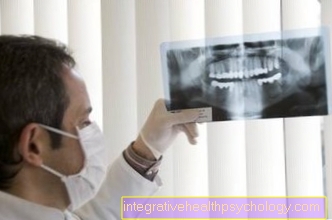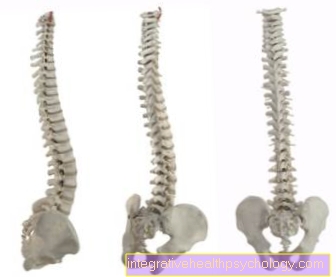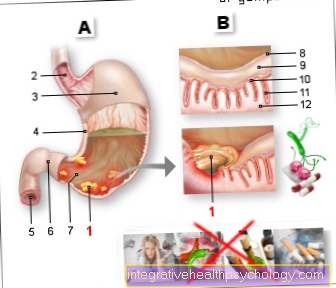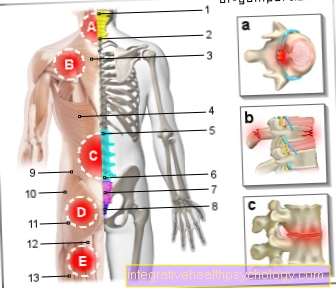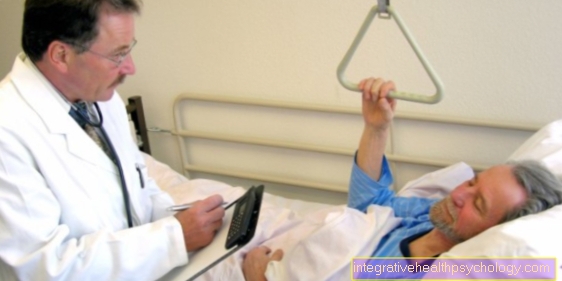Symptoms of tinnitus
General
The expression Tinnitus aurium comes from Latin and means something like "the ringing of the ears".
In this way, the tinnitus symptoms are in principle aptly described.
The differentiation between objective tinnitus and subjective tinnitus is fundamental.
Read more on the subject at: Ringing in the ears symptoms.
Objective tinnitus
When objective tinnitus are affected by the person Ringing in the ears perceived that can also be heard or measured by outsiders. This type of tinnitus aurium makes up the majority of cases. Noises come into question here that originate in vessels or muscles, for example. If the perceived noises in the ears cannot be heard or measured by the outside world, this is referred to as subjective tinnitus.
Symptoms
It is significant that tinnitus aurium is not an independent disease, but merely an expression of another underlying disease.
The disturbing ones Ringing in the ears as a symptom of tinnitus aurium are perceived in addition to the everyday noises that are perceived. They can be felt on one or both ears or in the head. A characteristic symptom of tinnitus can not only do that well-known ringing of ears but also a humming, hammering, knocking, cracking, ringing in the ears, whistling, hissing, chirping or hissing. A combination of several noises in the ear is also possible. The noises in the ears either have a constant intensity, they are regularly pulsating or pulse-synchronized, i.e. they coincide with the heartbeat. The volume and pitch of the noises in the ears can also vary.
Compensated / decompensated tinnitus
You can see the acoustic impressions in the context of a Tinnitus aurium are many and varied from patient to patient. The noises in the ears can either be a constant burden for the person affected or they only occur temporarily, for example in direct connection with stress or emotional stress. Depending on the impairment of the quality of life of the person affected by the noises in the ears, the tinnitus can be classified as compensated or decompensated describe.
In the compensated Form are the symptoms of tinnitus not restrictive to life of the patient and result in minimal suffering. To be distinguished from it is a decompensated tinnituswhere the tinnitus symptoms are adversely affecting life. In the course of decompensated tinnitus not only are many areas of life restricted, but unpleasant sequelae can join the actual tinnitus symptoms.
Secondary symptoms
These sequelae are known as Secondary symptomsas they are caused by the main symptom, tinnitus. To mention here are concentration and sleep disorders, depression and anxiety. On top of that, there are also accompanying symptoms, i.e. symptoms that are felt at the same time as the main symptom. Symptoms that accompany the tinnitus are for example Muscle tension, Hearing disorders and social demarcation. Also one Hyperacusis torments those affected in many cases. Hyperacusis is a pathological hypersensitivity to sounds of normal volume.
If the tinnitus causes such extensive complaints, it can also cause an inability to work or even thoughts of suicide. In many cases, decompensated tinnitus is specifically associated with depression. It is not uncommon for those affected to feel powerless against the noises in the ears as a tinnitus symptom and despair of these symptoms, as a doctor odyssey has repeatedly been mastered without real success. In this case, the tinnitus causes the depression. However, there is also the possibility that depression leads to tinnitus. The following symptoms may reveal depression: bad Frame of mind, Listlessness, Powerlessness and Joylessness. A lack of appetite, sleep disorders and a lack of concentration can also express depression.
It is significant that, contrary to popular opinion, the tinnitus symptoms can be prevented by adequate treatment or the noises in the ears are no longer a burden - the person affected is then cured.


